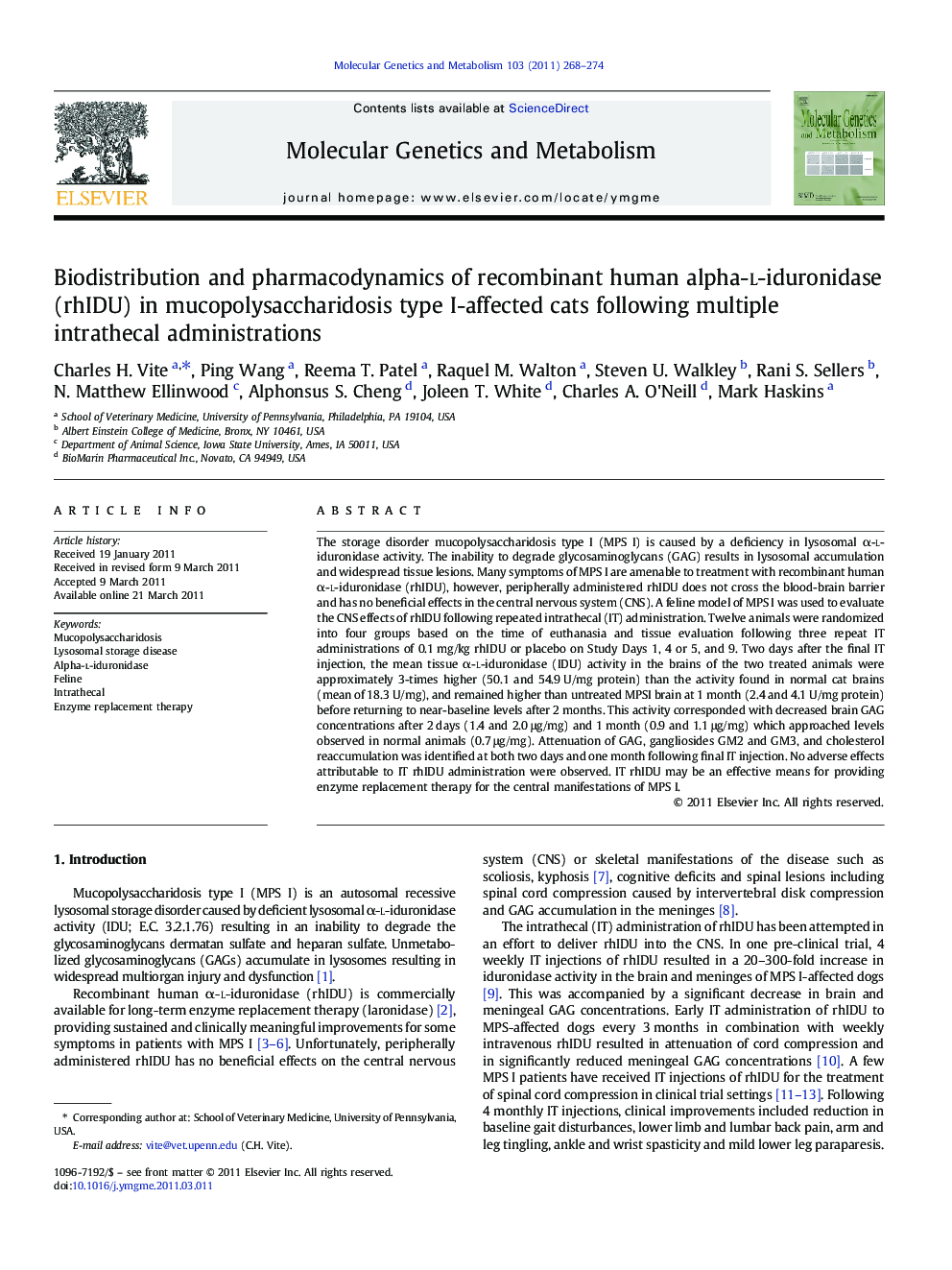| Article ID | Journal | Published Year | Pages | File Type |
|---|---|---|---|---|
| 1999154 | Molecular Genetics and Metabolism | 2011 | 7 Pages |
The storage disorder mucopolysaccharidosis type I (MPS I) is caused by a deficiency in lysosomal α-l-iduronidase activity. The inability to degrade glycosaminoglycans (GAG) results in lysosomal accumulation and widespread tissue lesions. Many symptoms of MPS I are amenable to treatment with recombinant human α-l-iduronidase (rhIDU), however, peripherally administered rhIDU does not cross the blood-brain barrier and has no beneficial effects in the central nervous system (CNS). A feline model of MPS I was used to evaluate the CNS effects of rhIDU following repeated intrathecal (IT) administration. Twelve animals were randomized into four groups based on the time of euthanasia and tissue evaluation following three repeat IT administrations of 0.1 mg/kg rhIDU or placebo on Study Days 1, 4 or 5, and 9. Two days after the final IT injection, the mean tissue α-l-iduronidase (IDU) activity in the brains of the two treated animals were approximately 3-times higher (50.1 and 54.9 U/mg protein) than the activity found in normal cat brains (mean of 18.3 U/mg), and remained higher than untreated MPSI brain at 1 month (2.4 and 4.1 U/mg protein) before returning to near-baseline levels after 2 months. This activity corresponded with decreased brain GAG concentrations after 2 days (1.4 and 2.0 μg/mg) and 1 month (0.9 and 1.1 μg/mg) which approached levels observed in normal animals (0.7 μg/mg). Attenuation of GAG, gangliosides GM2 and GM3, and cholesterol reaccumulation was identified at both two days and one month following final IT injection. No adverse effects attributable to IT rhIDU administration were observed. IT rhIDU may be an effective means for providing enzyme replacement therapy for the central manifestations of MPS I.
